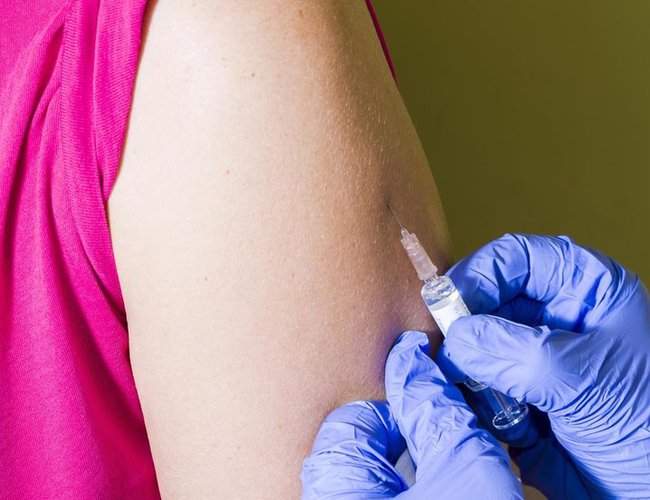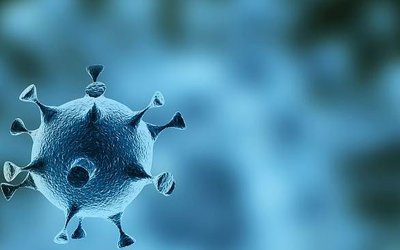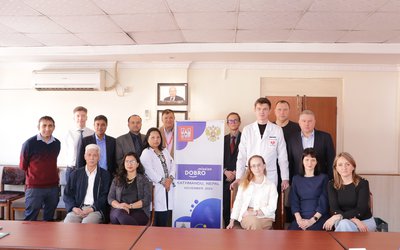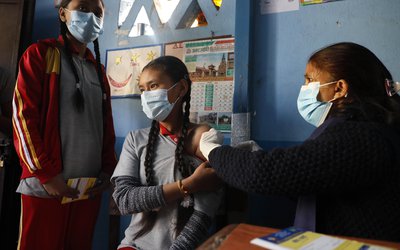
The University of Oxford in the United Kingdom on Thursday started the human trial of the novel coronavirus vaccine it has developed reports India Today.
According to India Today, in its first phase, the trial will be carried out on healthy adults between the age of 18 to 55. Once the safety is ascertained, it will be extended to elder people including that of Black and Asian minority ethnic (BAME) groups, including Indians.
It's hoped that the production of the Oxford trial vaccine should start in September but before people could rejoice, Chief Medical Officer of England, Chris Whitty warned that we might not be able to reap its benefits this year.
It could take us to early next year and in the meantime, he said, "Until we have the vaccine, we’re going to have to rely on other social measures."
Coronavirus vaccine trial is being run by the Jenner Institute of Oxford Vaccine Group. The team started work on this vaccine on January 20 this year. The project is being led by Prof Sarah Gikbert, Prof Andrew Pollard, Prof Teresa Lambe, Dr Sandy Douglas, Prof Catherine Green and Prof Adrian Hill.
The clinical trial is being conducted in multiple centres in collaboration with Prof Saul Faust at University Hospital Southampton NHS Trust and Dr Katrina M Pollock at NIHR Imperial Clinical Research Facility, Imperial College.
Imperial College London is also on its way to get into the human trial phase possibly in June.
While Oxford University is using the common cold virus taken from chimps to simulate the immune system, Imperial College is using the genetic material from the virus itself to achieve the same result of helping the immune system in a person to fight the virus. It’s is this very fight back by the immune system that some people win, and others succumb too. The vaccine intends to empower the immunity to fight back without getting sick.
The researchers are trying to achieve this by creating "spike proteins" that are found outside the Covid-19 virus inside the body. If the vaccine is successful in creating "spikes" then antibodies can be created to attack the virus and do the same in the future.
Imperial College says, "Early findings have shown that animals given the vaccine are able to produce neutralising antibodies against the novel coronavirus SARS-CoV-2. The team will now use the funding to develop their vaccine further and test whether it can produce the same response in humans, which could ultimately provide some protection against Covid-19."
- Japanese Ambassador Kikuta And DPM Shrestha Shared The Views to Deepen Nepal-Japan Bilateral Relations
- Apr 19, 2024
- India Provides Financial Support To Build A School Building In Darchula
- Apr 19, 2024
- Shalom Club-Nepal Expresses Solidarity With Israel Against Iran-attack
- Apr 19, 2024
- Foreign Secretary Lamsal Urged Bangladeshi To Explore Investment Opportunities In Nepal
- Apr 19, 2024
- Nepal Should Get Compensation For Damaged Caused By Climate Change: Minister Pun
- Apr 19, 2024
















